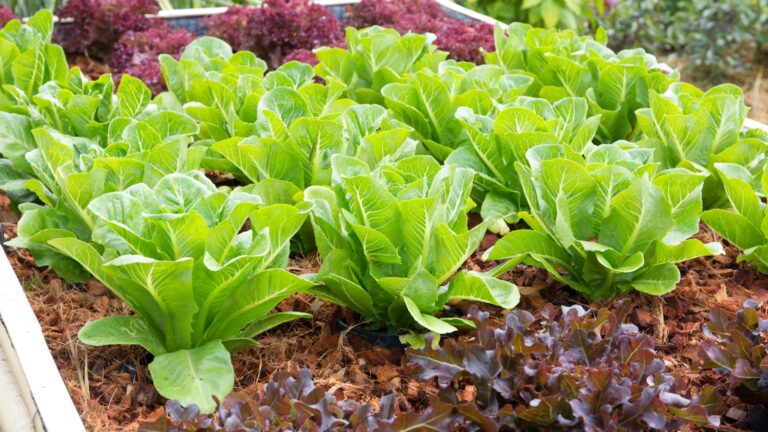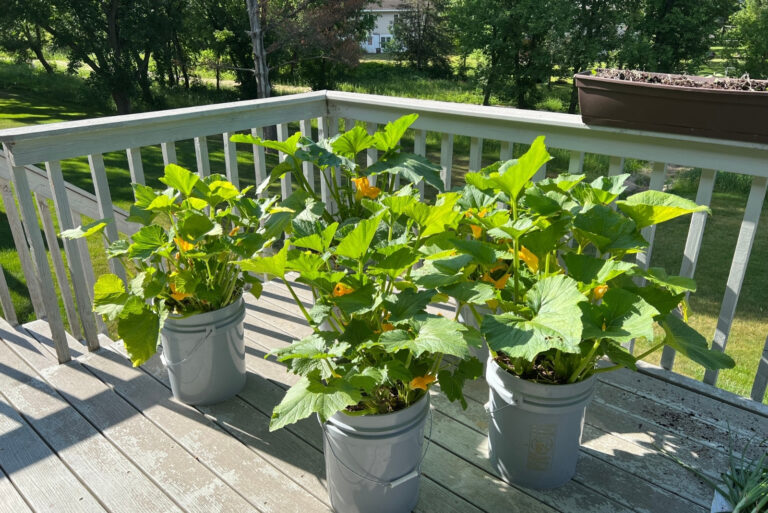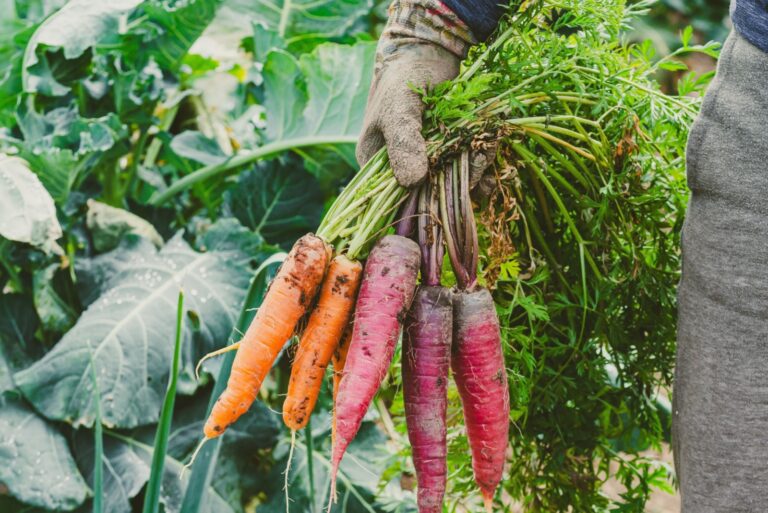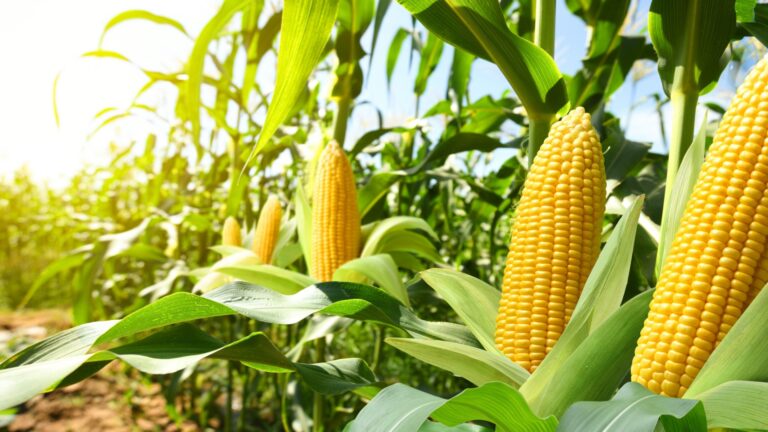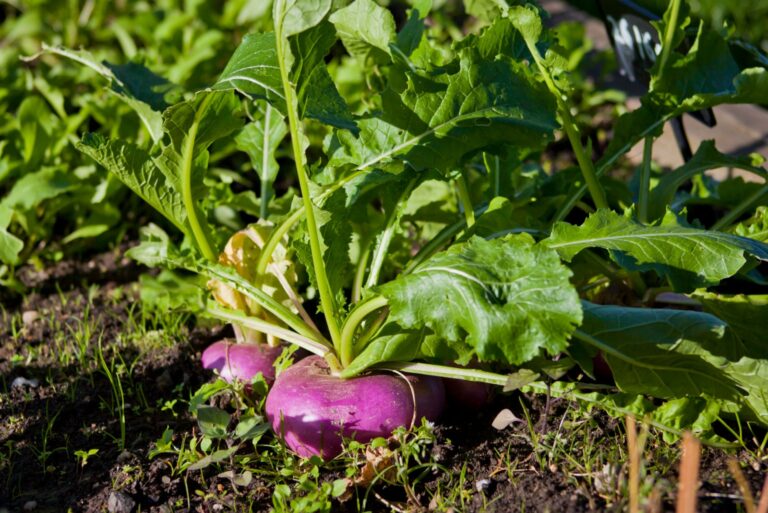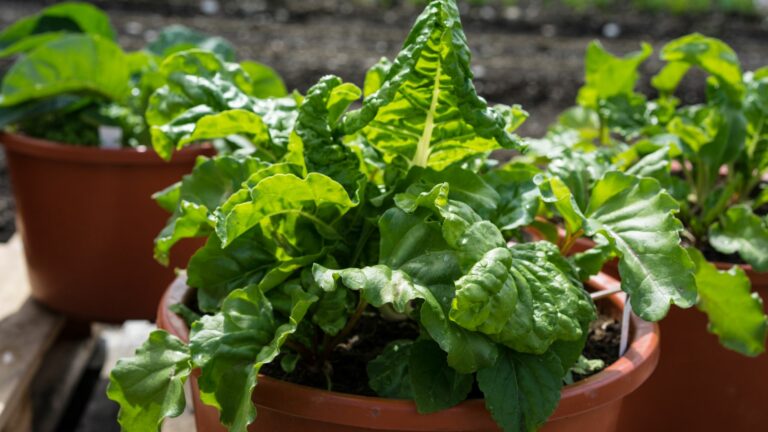11 Fruit Trees That Struggle In Tennessee’s Climate
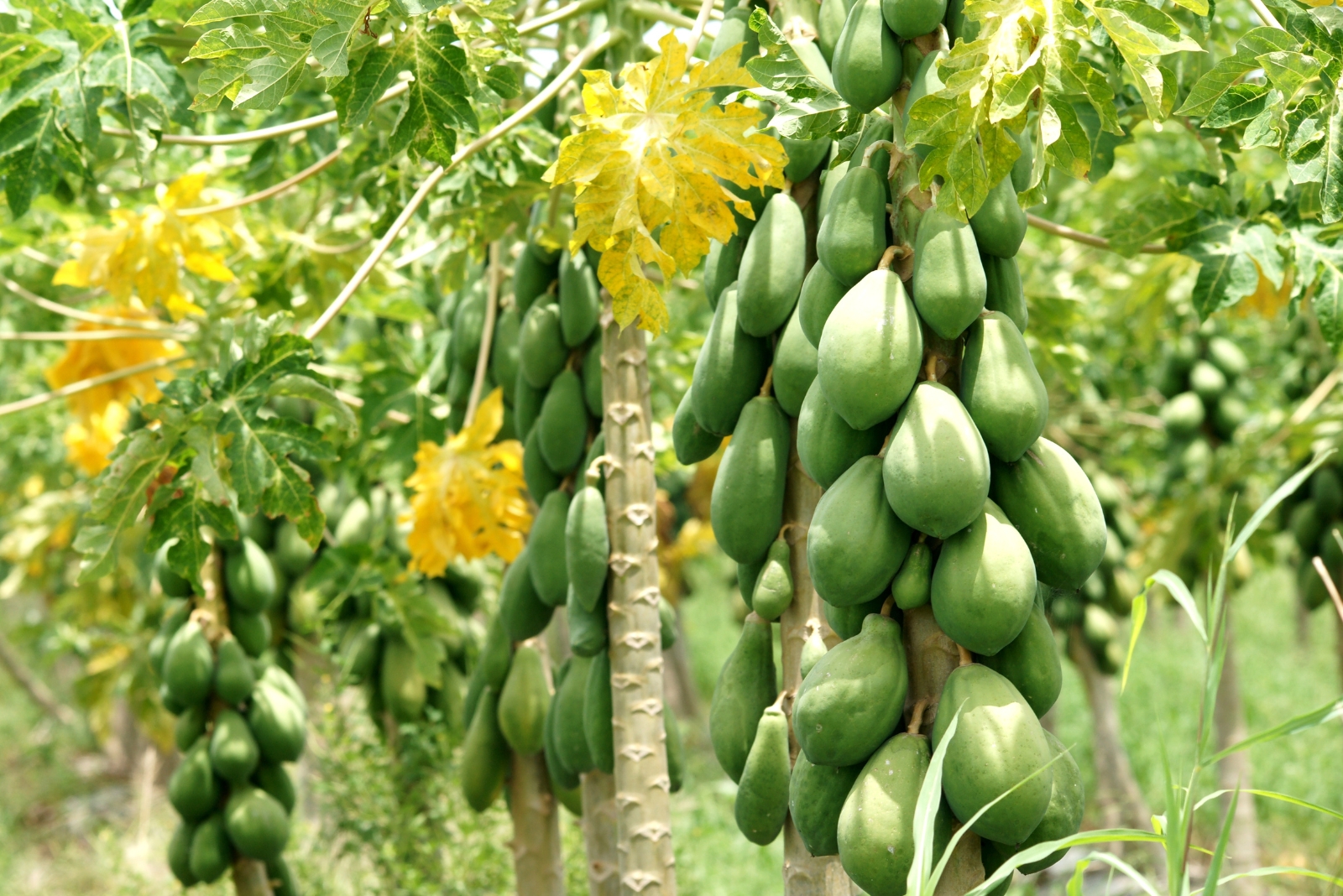
Growing fruit trees in Tennessee can be tricky business due to our unique climate patterns. With hot, humid summers and unpredictable winter temperatures, some fruit varieties simply can’t thrive in our Volunteer State soil.
Before you invest time and money in your backyard orchard, it’s worth knowing which trees might leave you frustrated instead of fruitful.
1. Mango Trees Wilt Under Tennessee Weather
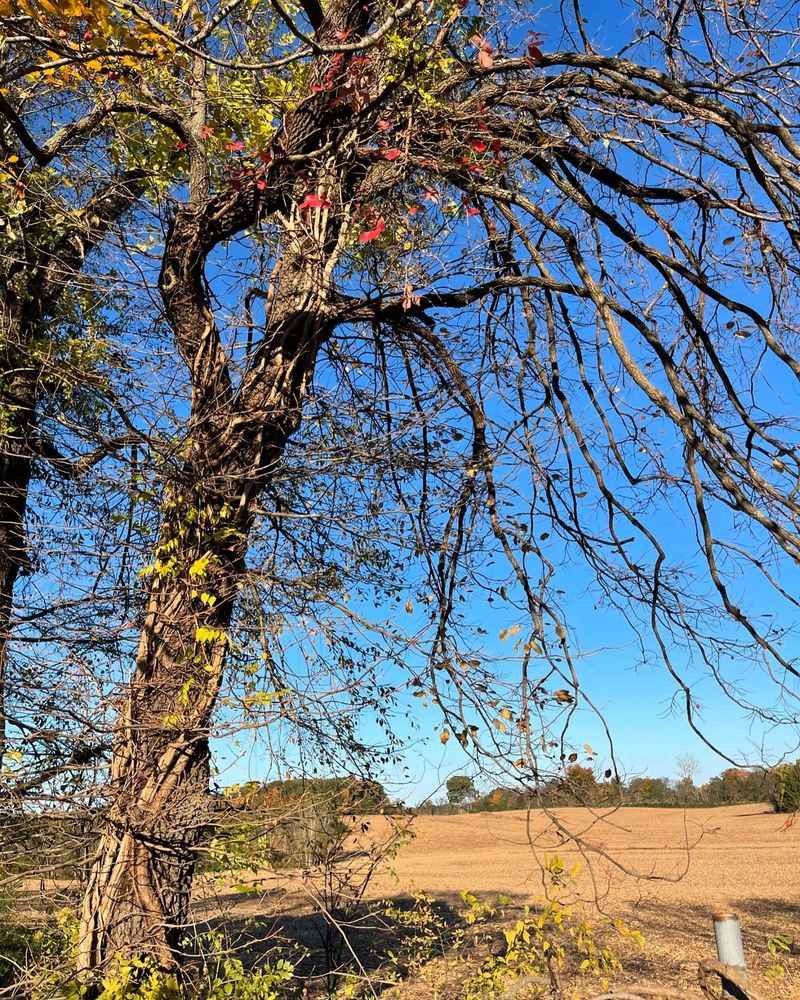
Tropical by nature, mango trees shiver at the mere thought of Tennessee winters. These heat-loving giants need consistent warmth year-round to produce their sweet, juicy fruits.
Even in protected areas, temperatures below 40°F damage their sensitive tissues. Attempts to grow them indoors rarely succeed long-term, as they need substantial space and intense sunlight that typical homes can’t provide.
2. Avocado Trees Surrender To Our Freezes
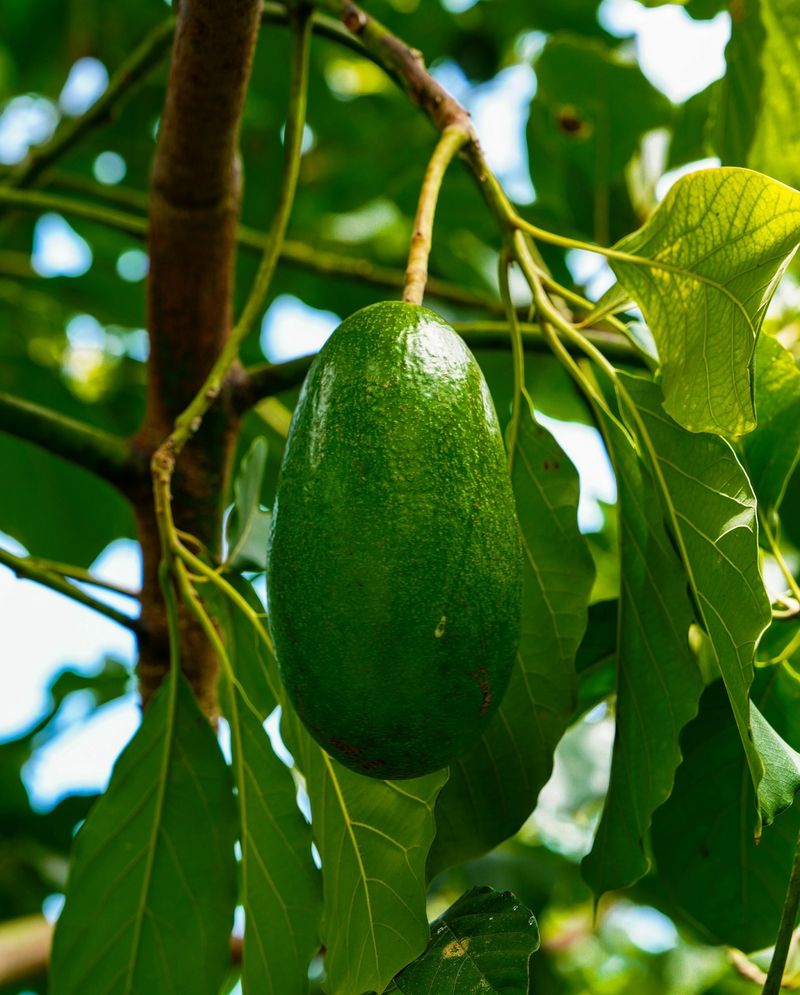
Dreaming of homegrown guacamole? Unfortunately, avocado trees and Tennessee winters mix about as well as oil and water. Native to warm Mexican highlands, these trees begin struggling when temperatures dip below 50°F.
Any frost will severely damage or kill them outright. While container-grown specimens can be moved indoors during winter, they rarely fruit in these conditions and remain perpetually vulnerable to our unpredictable spring temperature swings.
3. Banana Plants Falter In Tennessee Soil
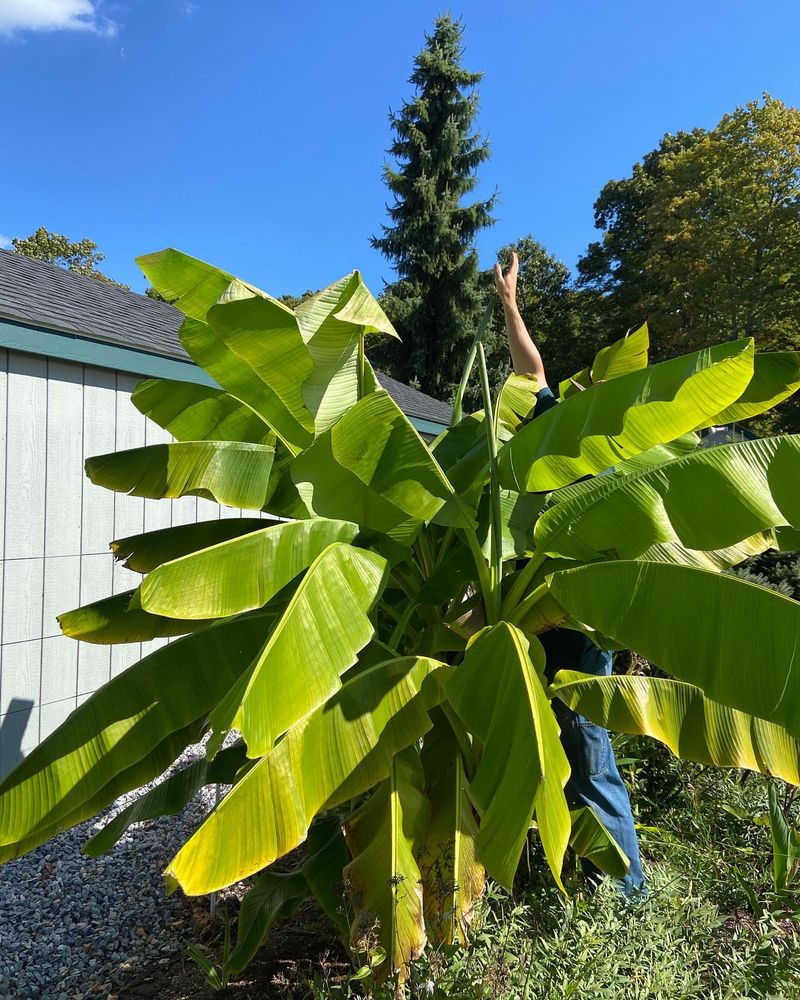
Despite their tree-like appearance, bananas are actually giant herbs that absolutely loathe Tennessee winters. Their water-filled pseudostems rupture when exposed to freezing temperatures, often killing the entire plant down to the ground.
While some dedicated gardeners grow ornamental varieties by heavily mulching the root zone, fruit production remains nearly impossible. The growing season simply isn’t long enough for the 10-15 months bananas need to develop edible fruit.
4. Papaya Trees Perish In Our Climate
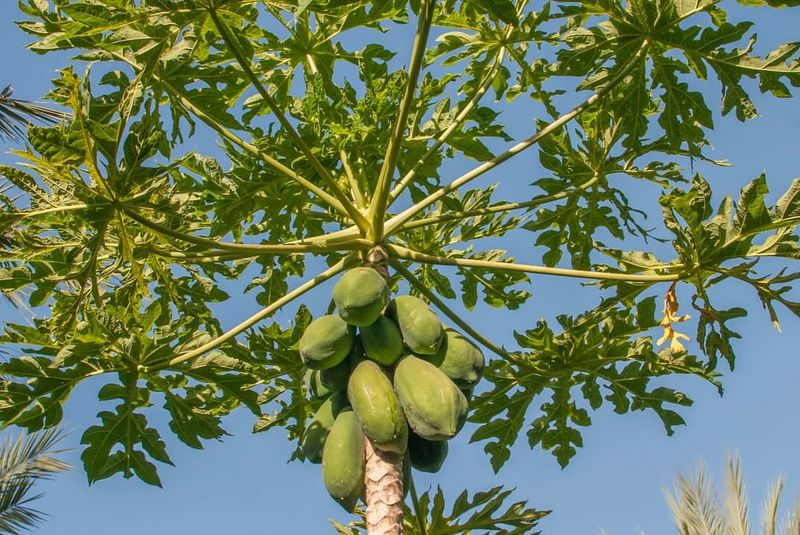
Fast-growing papayas might seem tempting for impatient gardeners, but they’re among the most cold-sensitive fruit trees you could attempt in Tennessee. Their hollow, non-woody trunks contain mostly water, which freezes and expands during our winter months.
Even a light frost causes catastrophic damage. Growing them in containers and moving them indoors works only temporarily, as their rapid growth quickly makes them unwieldy for most homes, and artificial lighting rarely provides enough intensity for fruit development.
5. Lychee Trees Reject Our Growing Zone
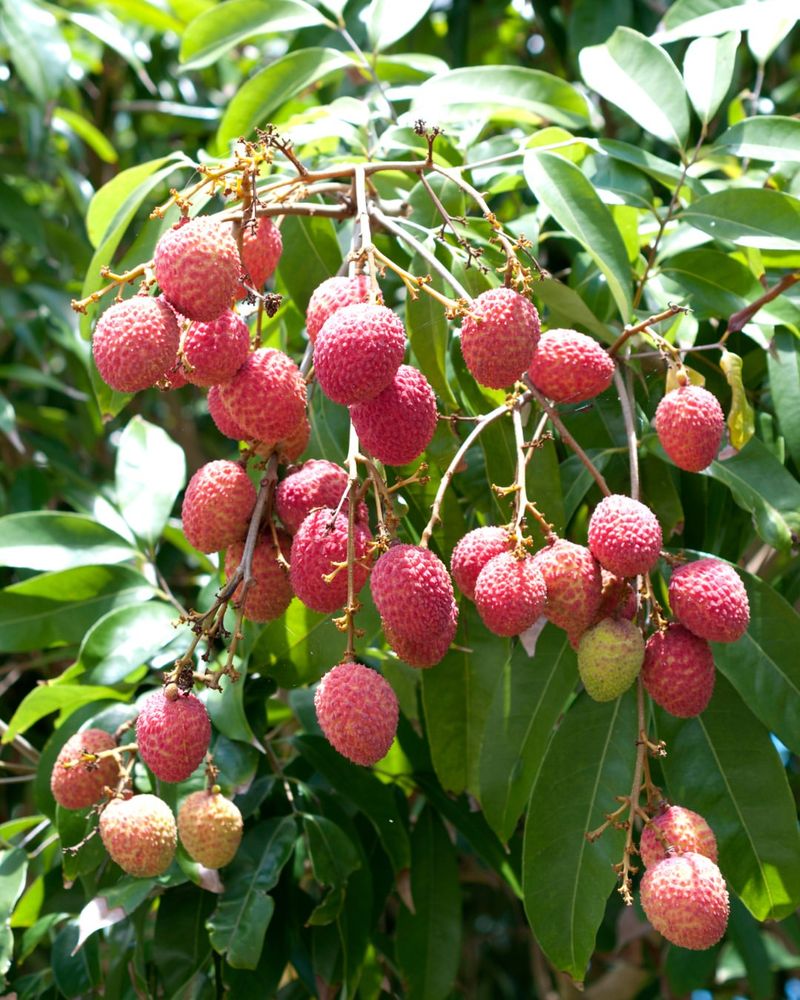
Lychee fruits might be delicious treasures at Asian markets, but growing your own in Tennessee borders on impossible. These subtropical trees require perfect conditions – warm but not scorching summers and mild winters that never dip below 28°F.
Tennessee’s unpredictable temperature swings stress lychees tremendously. Even if a tree survived a mild winter, our spring frosts would likely kill emerging flowers. Additionally, our humidity levels and rainfall patterns often trigger fungal issues in these sensitive trees.
6. Guava Trees Face Certain Doom
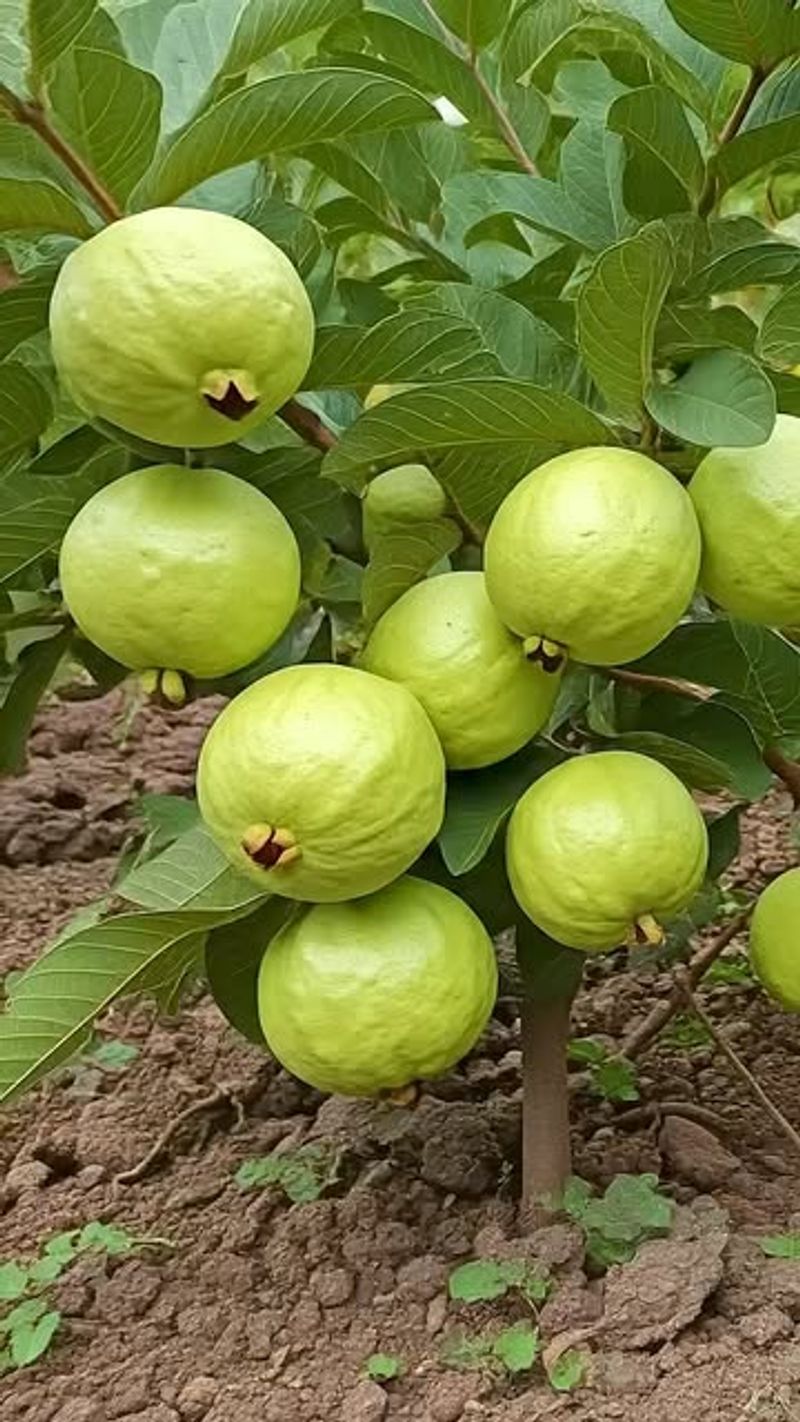
Guavas bring tropical flavor to desserts and smoothies, but Tennessee gardeners face disappointment when attempting to grow them. These tropical treasures suffer damage at temperatures below 28°F and die completely when exposed to hard freezes.
Our summer humidity creates another problem – increased susceptibility to pests and diseases that rarely trouble guavas in their native range. Container cultivation offers minimal success, as guavas need substantial root space to produce meaningful harvests.
7. Olive Trees Battle Against Tennessee Winters
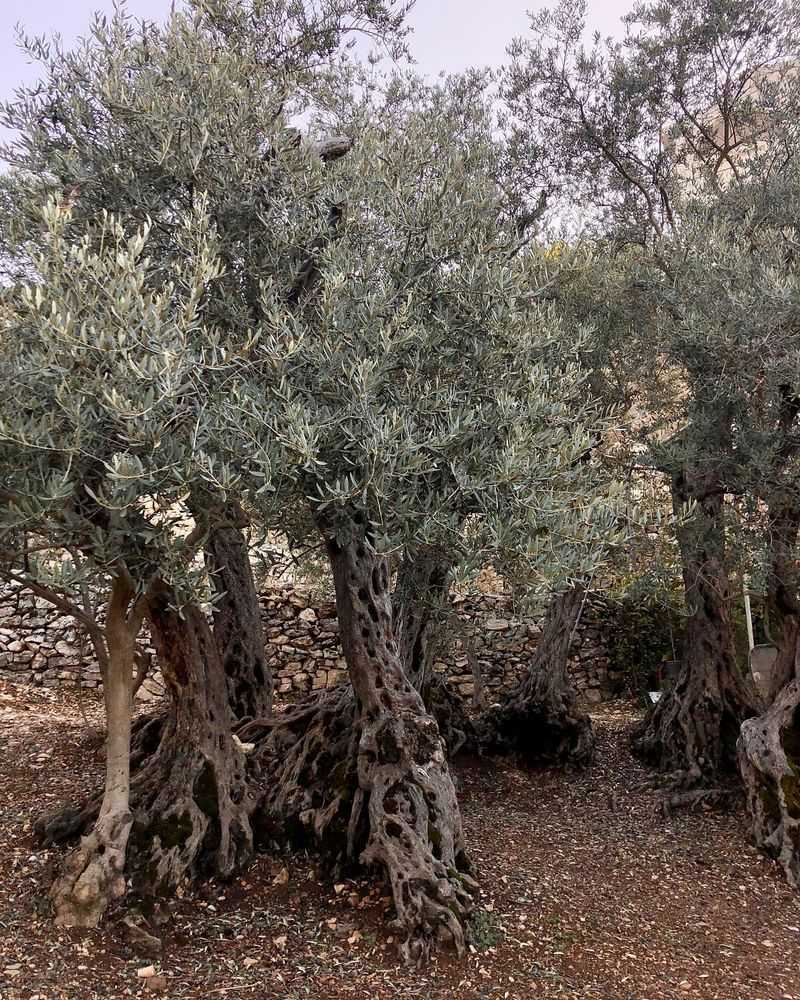
Mediterranean olive trees might conjure visions of Tuscan hillsides, but Tennessee’s climate quickly shatters that dream. While more cold-hardy than tropical fruits, most olive varieties still suffer severe damage below 15°F – a temperature our state regularly experiences.
Even cold-tolerant cultivars like ‘Arbequina’ struggle with our combination of cold and humidity. The few trees that survive rarely produce meaningful fruit harvests because our spring frosts kill the delicate olive blossoms before they can develop.
8. Jackfruit Giants Can’t Handle Our Cold Snaps
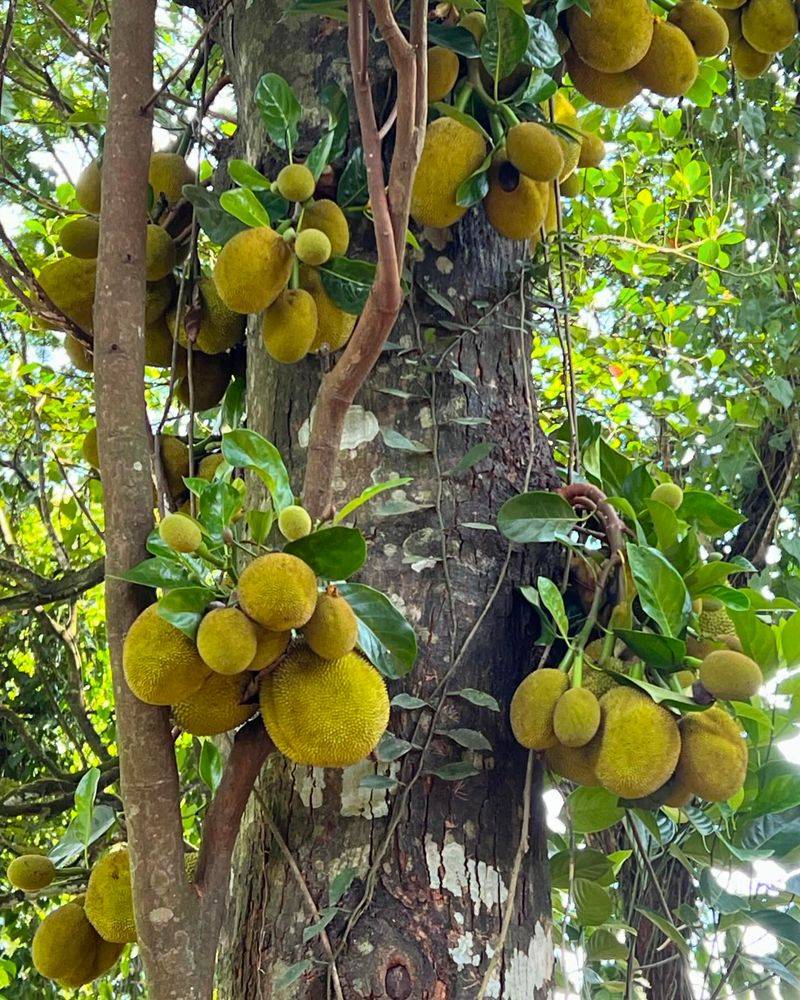
Jackfruit trees produce the world’s largest tree fruits – sometimes exceeding 100 pounds – but you won’t find these giants thriving in Tennessee. Native to tropical Asia, jackfruit trees suffer damage when temperatures drop below 40°F and die completely in freezing conditions.
Their massive size makes container growing impractical for most homeowners. Even in a greenhouse, they require tremendous space and perfect conditions. Our humidity levels also make them susceptible to fungal problems that rarely affect them in their native range.
9. Passion Fruit Vines Surrender To Frost
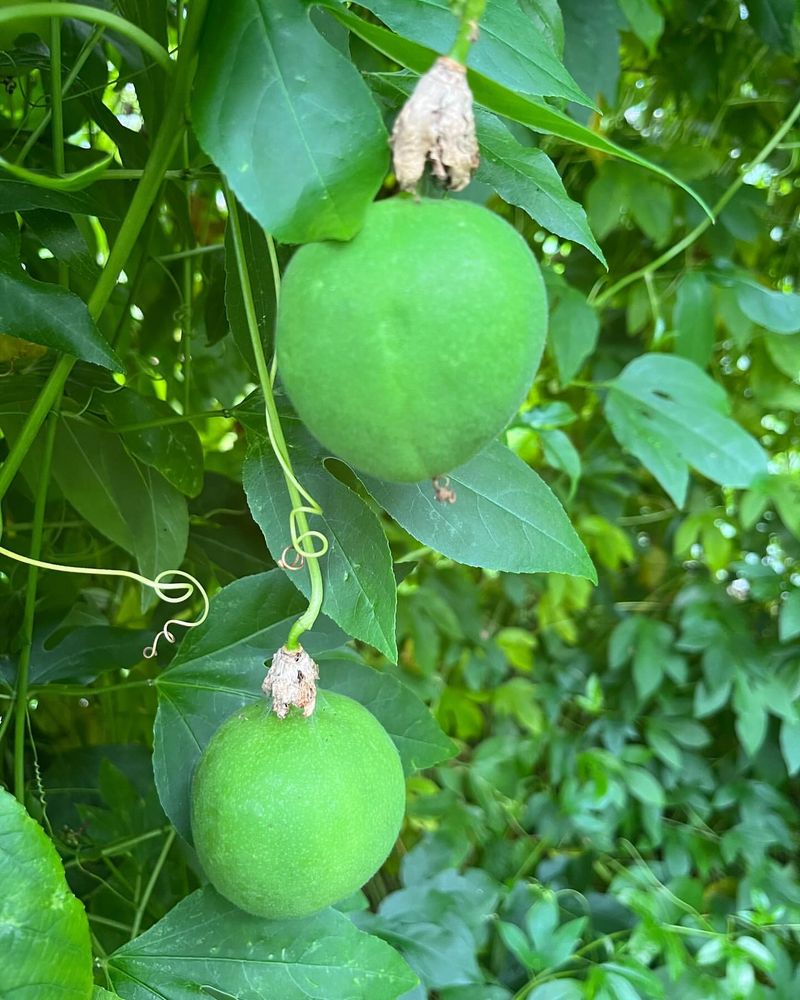
Technically vines rather than trees, passion fruit plants still deserve mention because many gardeners attempt them in Tennessee. Their exotic flowers and tangy fruits tempt many, but most varieties perish when temperatures drop below 30°F.
Even the more cold-hardy ‘Maypop’ variety often dies back to the ground in winter. While it may regrow from roots, the shortened growing season means fruit production becomes limited or nonexistent. Container growing works only with significant winter protection.
10. Star Fruit Trees Fail To Shine Here
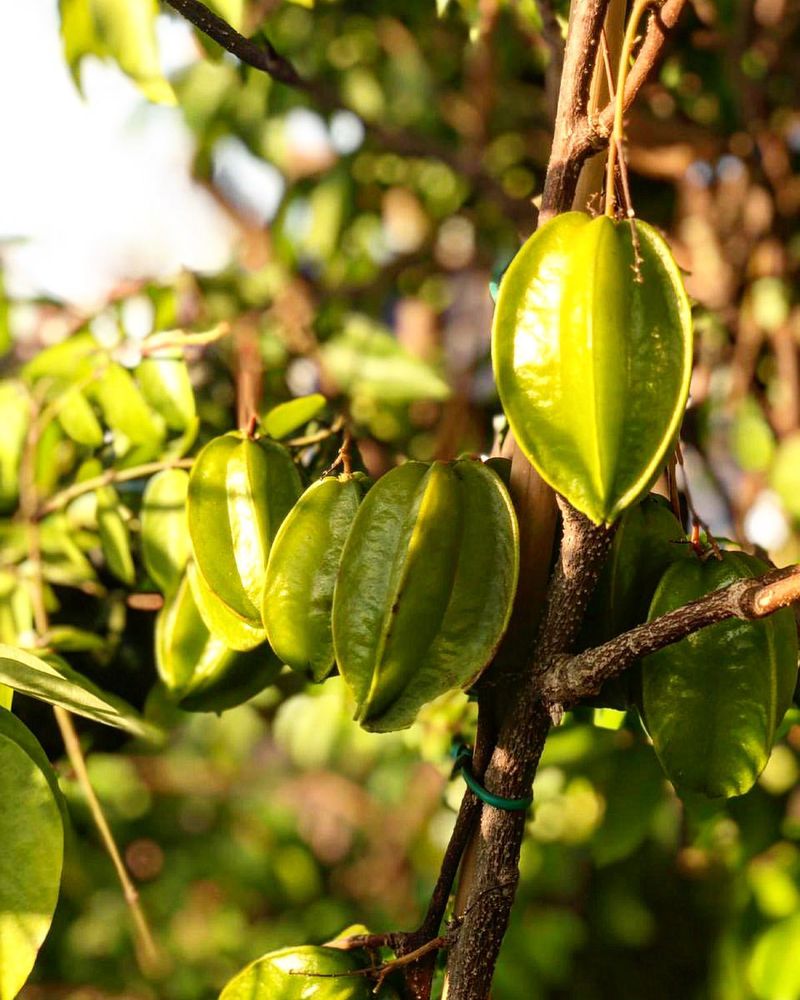
Star fruit’s distinctive shape makes it a grocery store curiosity, but growing your own in Tennessee remains a pipe dream. These tropical trees begin showing stress symptoms when temperatures drop below 55°F and suffer severe damage below 32°F.
Our winter temperatures guarantee failure for outdoor plantings. Container specimens might survive briefly if brought indoors during cold weather, but they rarely thrive or fruit under artificial lighting. The trees also require specific soil conditions rarely found naturally in Tennessee.
11. Coconut Palms Face Impossible Odds
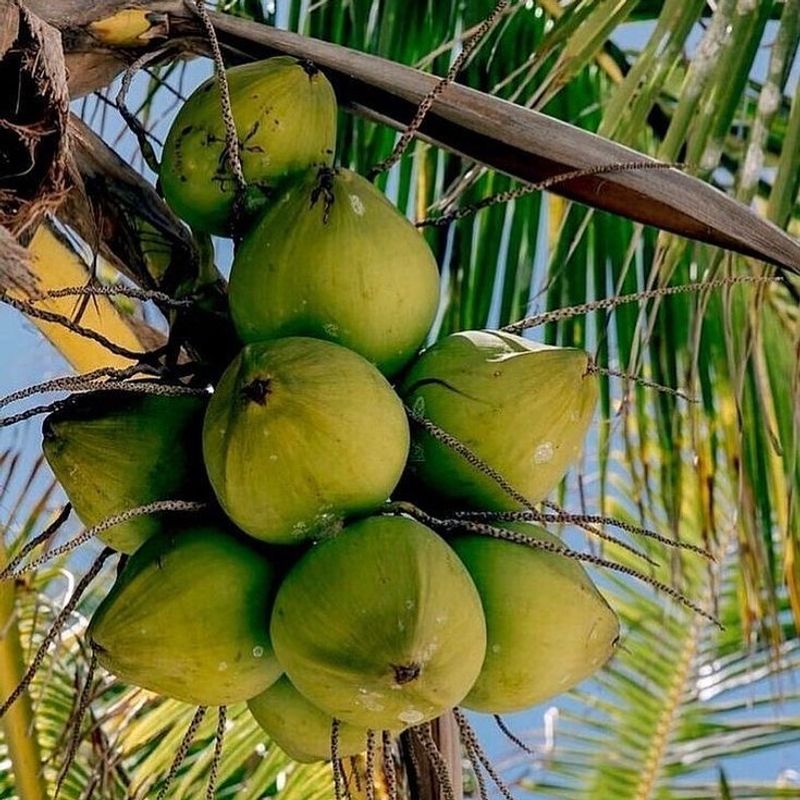
Perhaps the most unrealistic fruit tree attempt for Tennessee gardens, coconut palms epitomize tropical growing conditions. These iconic trees begin suffering at temperatures below 64°F and face certain death in freezing weather.
No amount of winter protection can make Tennessee hospitable for them. Even indoor growing proves futile, as they require intense direct sunlight and tremendous vertical space. The humidity and temperature fluctuations in typical Tennessee homes further compound the challenges.

